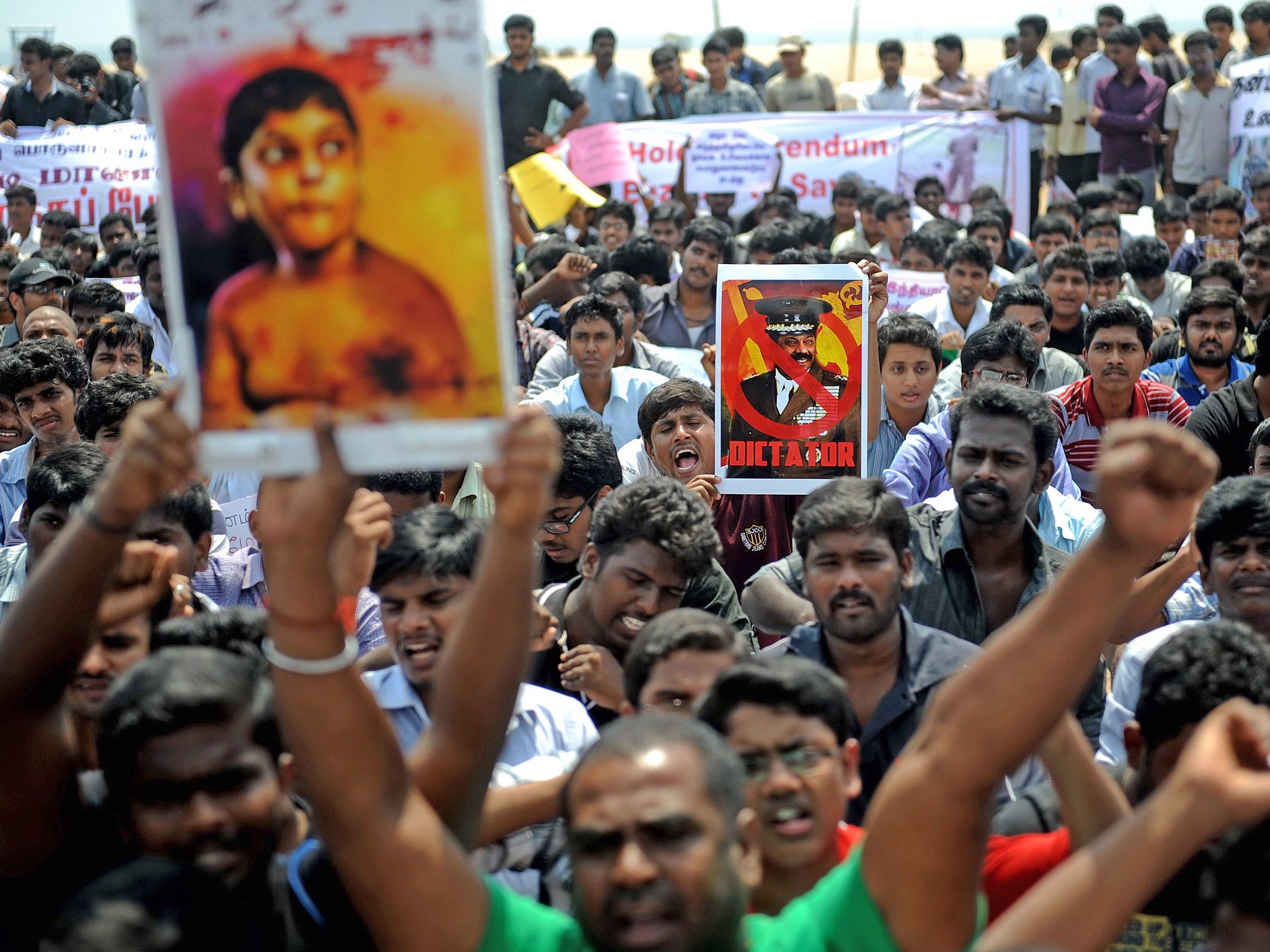David Cameron urged to to boycott Sri Lanka summit over 'human rights abuses'
Canada 'appalled' that Colombo had been selected to host the Commonwealth meeting

David Cameron is facing mounting calls to boycott an important Commonwealth meeting in Colombo amid continuing allegations that the Sri Lankan government is failing to end human rights abuses.
Mr Cameron is scheduled to attend the Commonwealth Heads of Government Meeting (CHOGM) in Sri Lanka in November. At the start of the three-day meeting, the presidency of the group is to he handed to Sri Lanka’s president, Mahinda Rajapaksa.
The Queen, or else another member of the royal family, is also due to take part in the biennial event.
But there are growing demands that Mr Cameron and the British delegation should not take part amid continuing concern about abuses in Sri Lanka. Last week, Canada’s foreign minister said the country was “appalled” that Sri Lanka had been selected to host the event.
The latest criticism of the Sri Lanka authorities comes from Amnesty International. In a report published on Tuesday, the group accuses the government of Mr Rajapaksa of sanctioning attacks on journalists, the judiciary, activists and opposition politicians. It says a climate of fear permeates the country.
“Violent repression of dissent and the consolidation of political power go hand in hand in Sri Lanka,” said Amnesty’s Polly Truscott. “The CHOGM meeting must not be allowed to go ahead in Colombo unless the government has demonstrated beforehand that it has stopped systematic violations of human rights.”
The government of Mr Rajapaksa has been repeatedly accused of overseeing abuses since the spring of 2009, when the Sri Lankan armed forces crushed the separatist Liberation Tigers of Tamil Eelam (LTTE), which had fought a bloody civil war for three decades.
A UN-appointed panel has said there are credible allegations that war crimes were committed by both sides amid reports that tens of thousands of civilians may have been killed in the final stages of the conflict. Since then, the government has been accused of targeting dissidents, the media and activists. It has also been accused of failing to address political demands of the country’s Tamil minority
Against such a backdrop, activists say Mr Cameron’s attendance at the meeting would send out the wrong signal.
“If Cameron goes he will be placing the seal of approval on the summit and other Commonwealth members who were on the fence will be pressured to attend,” said Fred Carver of the Sri Lanka campaign.
“If Cameron goes he will go going against the advice of Desmond Tutu, Geoffrey Robertson, the Commonwealth Lawyers Association, Malcolm Rifikind, the Foreign Affairs Select Committee and virtually every Commonwealth charity and NGO.”
The Sri Lankan authorities have yet to formally respond to Amnesty’s report. But Rajiva Wijesinha, a member of parliament and the president’s envoy on reconciliation, said the report appeared designed to be “political” rather than to suggest solutions.
He said since 2009 the government had spent millions of pounds on building infrastructure in the north of Sri Lanka, including roads, schools and hospitals. He said while more work was required, it would be wrong “not to register that Sri Lanka has done an awful lot that no other country in the same situation has done”.
There have been suggestions Britain’s decision could be announced in a matter of weeks. Elsewhere, British officials have suggested the formal September deadline for replying to the invitation is probably flexible while a determination is made on whether Sri Lanka is making progress on addressing various issues.
One of the things being scrutinised are the elections for the northern provincial council, which Mr Rajapaksa has said will take place in September. The election of the council is seen by Tamil groups as a crucial test of whether the government is prepared to devolve some power.
A foreign office statement issued on Tuesday, said: “No final decision on the level of UK attendance at CHOGM has yet been made. Whatever the formal agenda, and whoever attends, the spotlight will be on Sri Lanka, and it will either highlight progress or focus attention and pressure on the lack of it.”
A spokeswoman for Buckingham Palace said “no announcement has been made” on whether the Queen or any member of the royal family will attend.
Join our commenting forum
Join thought-provoking conversations, follow other Independent readers and see their replies
Comments
Bookmark popover
Removed from bookmarks